Lithuanian translation
Lithuanian translation service is necessary for companies that cooperate with Lithuania. With five million Lithuanian speakers, Lithuania is an attractive export market.

Why should you order Lithuanian translations from Transly Translation Agency?
Excellent Lithuanian translation
Transly Translation Agency has been awarded the international ISO 17100:2015 quality certificate, meaning that Transly Translation Agency complies with all the requirements for the provision of translation services. The Lithuanian translation you ordered from us retains the original meaning of the text, contains no mistakes and is natural-sounding to the intended reader. That is why, in the process of translating, we keep in mind the core meaning of the text and convey it in a way that is easy for the reader or user to understand. We firmly believe that a good Lithuanian translation is one that can easily be understood by your Lithuanian-speaking business partner, customer, or colleague, regardless of their background and mother tongue. We produce precise and terminologically correct legal translations. To achieve the best results, we will request additional information and review the source text where necessary. If you are looking to tap into the Lithuanian market, we are able to localise the translation to the Lithuanian audience – this is especially important when translating websites, marketing texts, safety data sheets and the like.

Swift Lithuanian translations
We work fast. Thanks to Transly’s excellent technical capabilities, skilled translators, and smooth processes, our translation process is also faster. We always do our utmost to get back to you as soon as possible and the same applies to the preparation of price quotes. If necessary, we can speed things up even more by having several translators working on one project simultaneously. Thanks to rapidly evolving neural machine translation, our working speed also improves. Modern translation software that detects repetitions in a text further helps accelerate our work process. In translating into Lithuanian, our work process is efficient and flexible and decisions are adopted quickly. Therefore, we can safely say that Transly is one of the fastest translation service providers in the field.

Affordable Lithuanian translation
Transly offers translations with the best price-to-quality ratio. Our translation projects are carried out using the most modern technologies available and involve both a translator with a master’s degree and a professional editor. Thanks to smart translation software and continuously evolving neural machine translation, we can offer a very competitive price for Lithuanian translation. We offer a discount on repeated segments in the text. This starts to play a significant role in permanent partnerships: the more similar texts we translate, the lower the unit price becomes for our loyal clients. We translate each segment once, which means you only have to pay for it once as well. This way you can be sure that we are making you the best offer.

Smooth translation process
We are here to make the translation process as smooth and convenient for you as possible. Thanks to our extensive knowledge and experience, we have been able to develop solutions that enable us to manage translations systematically while also making use of translation memories, term bases and a central workflow system. We know that project management entails much more than just organising the translation of a text from one language to another. Having a streamlined workflow is essential in order to guarantee a stress-free ordering experience, transparent budget, and Lithuanian translations that are completed in due time. For this purpose, we have minimised or automated all time-consuming standard procedures. This way you can be sure that both the budget and the deadline for the translation will meet your high expectations.

Confidentiality guaranteed
We guarantee the confidentiality of all texts. Digital safety, data protection and confidentiality are aspects which we take very seriously in our work. The contract for translation services contains a confidentiality agreement. If necessary, it is also possible to conclude a separate confidentiality contract. The use of translation software and a secure storage server both help reduce the risk of data leaks. Thanks to translation software, there is no need to send files via e-mail, which helps prevent data leaks and misdirected e-mails. Additionally, real-time backup is integrated into our translation process, ensuring that your Lithuanian translation is in safe hands with us.

All translation-related services from one agency
We want your co-operation with us to be as convenient as possible. We will do our best to accommodate all your translation, editing and content creation wishes as well as those related to these services. Therefore, we also offer a search engine optimisation service for translated websites and a localisation service for online stores. Our services also include translation consulting, assessment of translation quality, voice-over, and dubbing. In addition, we are happy to offer layout, design and printing services for translated texts. This all ensures that you can easily and conveniently find all Lithuanian translation related services in one place.

Külli
Külli is the Head of Translation at Transly Translation Agency. She has been working as a translator for more than 15 years and has studied translation at Tallinn University. Külli is a perfectionist who is never satisfied with anything less than the optimal result. Her unique ability is her fast-reading skills. She also has extremely good technical acuity and an unerring ability to anticipate upcoming trends.

Transly Translation Agency offers professional translations that save you time and money.
To place an order, send us an email or fill out the enquiry form with the following information:
- What services you are interested in
- Which languages you need the service in
- What the deadline for the job is
Please also include any additional information or a file when submitting your request so that we can analyse it and provide you with an exact quote.
We will get back to you with a quote within an hour.

Which Lithuanian translation service should I choose?
Lithuanian technical translation
Technical translation covers areas such as engineering, construction, environmental protection and technology, information technology, transport, automation, etc. The most common types of texts that require technical translation are, for example, user manuals, safety instructions, quick-start guides, setup guides, reports and applications. Technical translation forms a very important part of the services provided by Transly. We translate user manuals and IT-related texts into Lithuanian, localise applications for the Lithuanian-speaking market, and offer many other services.
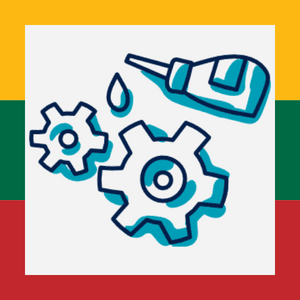
Website translation into Lithuanian
Website translation is one of our most popular services. A high-quality website translation creates a trustworthy image for your company. That is why we will translate the website of your company into Lithuanian conveniently, quickly and with quality in mind. Manual copying and pasting of website texts is a thing of the past – we use smart technology to automatically export web texts and import translations. Transly’s Lithuanian translators and editors have SEO knowledge and, in the process of translating websites, web texts and blog posts, they take strategic keywords into account.
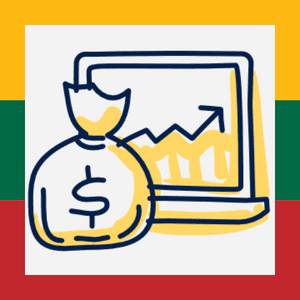
Translation of economic texts into Lithuanian
The translation of economic texts into Lithuanian is an important field that includes annual report Lithuanian translations as well as the Lithuanian translation of accounting documents, bank statements, proof of payments, and the like. The advantages of using Transly when you plan to acquire Lithuanian translation of economic texts encompass: knowledge of financial vocabulary and accounting and banking terminology, confidentiality, speed, good communication, and excellent price-to-quality ratio.

Legal translation into Lithuanian
Legal translation into Lithuanian involves the translation of contracts, court documents and legislation. With ISO-certified quality processes in place, we produce precise and terminologically correct legal translations into Lithuanian. Transly complies with strict personal data protection rules and confidentiality requirements, which are especially important in legal translation.
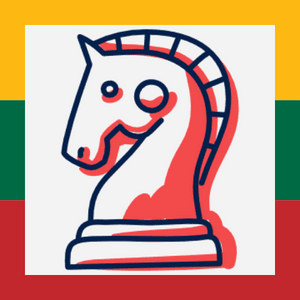
Marketing translation into Lithuanian
The translation of a marketing text into Lithuanian can be considered successful when the message is conveyed accurately in Lithuanian, the translation reflects the values and style of the brand, and, above all, the Lithuanian translation does not come across as a translation. Translating product descriptions, websites, online stores, overviews, articles, slogans, advertisements, campaign messages, sales offers, company missions or visions, or brand values into Lithuanian fall under marketing translation into Lithuanian. In addition to marketing translation, Transly is also an expert in the field of Lithuanian localisation and transcreation or creative translation into Lithuanian.
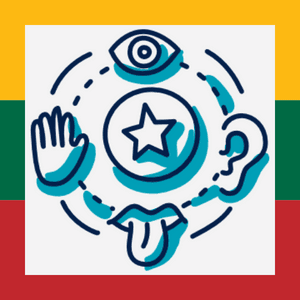
Translation of scientific texts into Lithuanian
The translation of scientific texts into Lithuanian is also one of our main services. Our clients include Tallinn University, Tallinn University of Technology, the Estonian Research Council, the Geological Survey of Estonia, the Estonian Environmental Research Centre, the Praxis Center for Policy Studies, and the Estonian Ministry of Education and Research, among many others. In the translation of research articles or doctoral theses into Lithuanian, we will pay particular attention to relevant terminology and work closely with the client to ensure a quality translation.
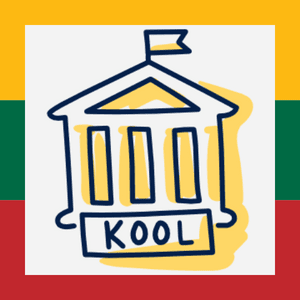
Medical translation into Lithuanian
Medical translation into Lithuanian involves, among other things, the Lithuanian translation of user manuals for medical devices, information on medicinal products, patient information leaflets, health files, pharmaceutical research, etc. All our Lithuanian translations undergo a quality-assurance process pursuant to the ISO standard, ensuring that Lithuanian translations are accurate, completed on time, and comply with other quality standard requirements. Other advantages of choosing Transly include confidentiality, speed, and an excellent price-to-quality ratio.
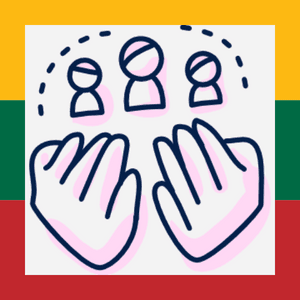
Safety data sheet translation into Lithuanian
A safety data sheet is a document that provides information on how to ensure the safe use of a chemical throughout the supply chain. Since each safety data sheet supplier is responsible for the contents of the safety data sheet, it is best to entrust the translation of safety data sheets into Lithuanian to Transly Translation Agency. Not only do we translate the text, but we can also identify potential substantive shortcomings or inconsistencies in it. We have extensive experience of translating safety data sheets into Lithuanian. We always keep up to date with the latest relevant legislation and official terminology, in order to ensure the correctness, clarity and accuracy of your safety data sheet translations.
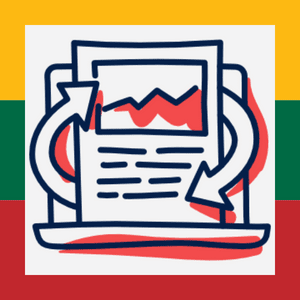
Lithuanian localisation
Software localisation is the translation and customisation of a computer program or mobile application for the Lithuanian market. Software localisation takes into account the preferences, needs and habits of users in Lithuania. Software localisation jobs at Transly are entrusted to professional translators who are both tech-savvy and native speakers of Lithuanian.

Lithuanian interpretation services
Interpreting, whispered interpreting, remote interpreting, conference interpreting and consecutive interpreting are Lithuanian translation services that are needed at events, meetings, training courses, notarial transactions, etc. Transly’s Lithuanian interpreters are highly trained professionals with lengthy experience in a variety of fields. We will help you choose an interpreting service that best meets your needs.
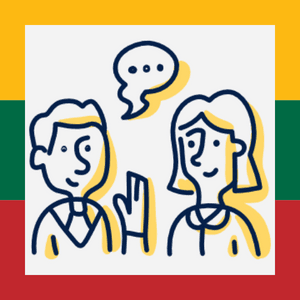
Sworn translation into Lithuanian
Sworn translation into Lithuanian is an official document translation service which we offer in co-operation with Lithuanian-language sworn translators. The Lithuanian sworn translator assumes liability for the correctness of translation with their signature and seal. If a certified Lithuanian translation is required, for example, for school admission, travel, or court proceedings, only sworn translators are competent to translate these documents into Lithuanian.

The best translation is the outcome of human input and technology. Get the finest translation services from Transly Translation Agency.
Translation languages
English-Lithuanian and Lithuanian-English translation
English is spoken by 1.5 billion people worldwide! Transly translates websites, user manuals, leaflets, contracts, marketing texts and much more besides into English. We also translate from English into Lithuanian. Send us a English-Lithuanian-English translation enquiry!

Russian-Lithuanian and Lithuanian-Russian translation
Did you know that on Russian websites it is good practice to use the formal you instead of the informal you when addressing the reader? Transly translates websites, product descriptions, contracts and much more besides into Russian. We also translate from Russian into Lithuanian. Send us a Russian-Lithuanian-Russian translation enquiry!

Latvian-Lithuanian and Lithuanian-Latvian translation
More than one million people speak Latvian as a native language. We translate websites, online stores, product datasheets, catalogues, marketing texts, documents and much more besides into Latvian. We also translate from Latvian into Lithuanian. Send us a Latvian-Lithuanian-Latvian translation enquiry! We will be waiting.

Polish-Lithuanian and Lithuanian-Polish translation
The Polish language has a total of 38 million speakers worldwide. We translate websites, user manuals, leaflets, contracts, marketing texts and much more besides into Polish. We also translate from Polish into Lithuanian. Send us a Polish-Lithuanian-Polish translation enquiry!

Ukrainian-Lithuanian and Lithuanian-Ukrainian translation
More than 45 million people speak Ukrainian as a native language. We translate websites, user manuals, leaflets, contracts, marketing texts and much more besides into Ukrainian. We also translate from Ukrainian to Lithuanian. Send us a Ukrainian-Lithuanian-Ukrainian translation enquiry! We will be waiting.

Swedish-Lithuanian and Lithuanian-Swedish translation
More than ten million people speak Swedish. We translate websites, user manuals, leaflets, contracts, marketing texts and much more besides from Swedish-Lithuanian and Lithuanian-Swedish. We offer professional Swedish-Lithuanian-Swedish translations that save you time and money. Send us a Swedish-Lithuanian-Swedish translation enquiry! We will get back to you within 2 hours.

Finnish-Lithuanian and Lithuanian-Finnish translation
More than five million people speak Finnish. Transly translates websites, online stores, leaflets, contracts, marketing texts and much more besides into Finnish. We also translate from Finnish into Lithuanian. Send us a Finnish-Lithuanian-Finnish translation enquiry!

Estonian-Lithuanian and Lithuanian-Estonian translation
Around one million people speak Estonian as a native language. We translate websites, user manuals, leaflets, contracts, marketing texts and much more besides into Estonian. We also translate from Estonian into Lithuanian. Send us a Lithuanian-Estonian-Lithuanian translation enquiry!

German-Lithuanian and Lithuanian-German translation
It is not easy to redeem yourself in the eyes of a German once you have made a spelling mistake. Transly translates websites, online stores, contracts, marketing texts and much more besides into flawless German. We also translate from German into Lithuanian. Send us a German-Lithuanian-German translation enquiry! We will be waiting.

French-Lithuanian and Lithuanian-French translation
Did you know that more than 200 million people worldwide speak French? We translate websites, menus, contracts, marketing texts and much more besides into French. We also translate from French to Lithuanian. Send us a French-Lithuanian-French translation enquiry!

Spanish-Lithuanian and Lithuanian-Spanish translation
Did you know that European Spanish and Latin American Spanish are different from each other? Transly translates websites, contracts and much more besides into Spanish. We also translate from Spanish into Lithuanian. Send us a Spanish-Lithuanian-Spanish translation enquiry!

Italian-Lithuanian and Lithuanian-Italian translation
Italian is spoken by approximately 85 million people around the world. We translate websites, user manuals, leaflets, contracts, marketing texts and much more besides into Italian. We also translate from Italian into Lithuanian. Send us an Italian-Lithuanian-Italian translation request! We will be waiting.

Norwegian-Lithuanian and Lithuanian-Norwegian translation
Norwegian has a total of 5 million native speakers. Transly translates websites, online stores, leaflets, contracts, marketing texts and much more besides into Norwegian. We also translate from Norwegian into Lithuanian. Send us a Norwegian-Lithuanian-Norwegian translation enquiry!

Entrust your translations to us. The eager translators of Transly Translation Agency provide fast and high-quality translations.
Frequently asked questions about Lithuanian translation
What should one consider when ordering a Lithuanian translation?
Translations from Lithuanian and into Lithuanian generally take slightly more time than those between other language pairs, because there simply aren’t too many Lithuanian translators and the best are constantly busy. The price of Lithuanian-English-Lithuanian translations is similar to that of Latvian-English-Latvian translations. We provide Lithuanian translations of technical, medical and legal texts, user manuals, technical documentation, marketing texts and sales materials as well as websites, programmes, applications and much, much more.
We also offer proofreading of Lithuanian-language texts by an experienced editor who speaks Lithuanian as a native language. Upon request, we also offer additional services related to translation, such as translation layout, design, printing, insertion into websites and many others.
How strong is the influence of the Lithuanian language?
Both Lithuanian and Latvian belong to the Baltic language family. While Lithuanian is certainly similar to Latvian, it has been more conservative, meaning that Lithuanian has seen fewer changes over time than Latvian. In fact, Lithuanian is considered the most archaic living Indo-European language. Lithuanian has about two million speakers, and nearly all Lithuanians speak the language to some extent. Lithuanian is also spoken by ethnic minorities in Belarus, Latvia, Poland, the Kaliningrad Oblast and elsewhere in the world. Lithuanian is the mother tongue of almost 90% of the population of Lithuania. In addition to Lithuanians, the country is also home to many Poles (5.6%), Russians (4.8%), Belarussians (1.3%) and Ukrainians (0.7%) along with a few members of other ethnic minorities. All ethnic minorities living in Lithuania can speak Lithuanian. Considering the size of the Lithuanian market, its geographical location and rapid economic development, Lithuania is a very promising export market.
What are some interesting Lithuanian expressions?
The Lithuanian language is ancient. Nevertheless, some of the many interesting expressions in Lithuanian are quite modern. For example, Lithuanians refer to lying as ‘hanging pasta on someone’s ears’ (kabinti makaronus). People who forget to close the door after themselves are said to be ‘born in a trolleybus’ (troleibuse gimęs). Lecturing others is referred to as explaining ‘where legs grow out from’ (iš kur kojos dygsta). Failures or fruitless activities are referred to as ‘slicing mushrooms’ (grybą pjauna). Instead of ‘quarrelling’, the Lithuanians ‘clarify relationships’ (aiškintis santykius). And in Lithuania, if you consider someone a fool, you can say their ‘face is unharmed by intellect’ (intelekto nesužalotu veidu).
What is the history of Lithuania?
The word ‘Lithuania’ was first mentioned in Saxon records in the year 1009. In the mid-13th century, the Grand Duchy of Lithuania was established, which remained an independent state until the 16th century. In the 15th century, Lithuania was the largest state in Europe, spanning Belarus, most of present-day Lithuania and Ukraine as well as parts of Poland, Moldova and Russia. The Grand Duchy of Lithuania only collapsed at the end of the 18th century. In the course of World War I, Lithuania was severely ravaged by the Germans, the Polish and the Russians. After World War II, Lithuania was annexed by the Soviet Union. On 11 March 1990, with the collapse of the Soviet Bloc, the Supreme Council of Lithuania declared the country independent – the first of the Baltic states to regain independence. Due to this historical context, the Lithuanians have a very strong sense of national pride. They would rather speak English than Russian and tend to not take jokes made at the expense of their nation lightly.
Why is Lithuania a promising export market?
Lithuania is considered to have an efficient and pleasant business environment. This is due to the fact that the Lithuanian economy is growing, the legislative environment is stable, and political risks are low. Under Lithuanian law, foreign investors may enter the Lithuanian market by establishing a local branch or a private limited company (UAB). Establishing a private limited company in Lithuania requires initial capital of at least 2,500 euros, while the maximum number of permitted shareholders is 250. Establishing a company in Lithuania takes two to four weeks. In Lithuania, corporate income tax is 15%, VAT is 21% and corporate social security contributions are around 31%. Additional information about Lithuania can be found here.
What should one consider when entering the Lithuanian market?
Lithuanian business culture is similar to that of Western Europe. Lithuanians are generally open communicators, although at the first meeting they may remain rather reserved. To ensure that your business meeting with Lithuanians is a success, it’s best to follow these guidelines:
- Avoid speaking Russian. Lithuanians are strongly nationalistic and they consider themselves more of a Western European nation, so engaging them in conversation is better conducted in English rather than Russian.
- Basketball is a good topic. The Lithuanian national basketball team is one of the best in the world and Lithuanians are very knowledgeable about the world of basketball, so this is always a safe bet.
- Lithuania is a Catholic country. Lithuanians are polite, reserved and respectful and expect the other party to respond in kind. They are proud of their country and nation and generally do not tolerate criticism of Lithuania’s economy or social order.
- Lithuanian management culture leans closer to being authoritarian than liberal. Managers prefer to negotiate and conclude agreements with equal or higher level managers.
- Kissing others on the cheek, patting them on the back or touching them in general is inappropriate between business partners of both the same as well as the opposite sex.
Lithuanians expect frequent eye-to-eye business meetings and agreements must always be concluded in writing, because oral agreements are not considered binding.
Read more
TRANSLY TRANSLATION AGENCY, TRANSLATION, EDITING, CONTENT CREATION, FULL-SERVICE TRANSLATION, ABOUT US, TRANSLATION SERVICES

Lithuanian holidays in 2022

Out of office message in English, Finnish, Estonian, Russian, German, Lithuanian and Latvian













